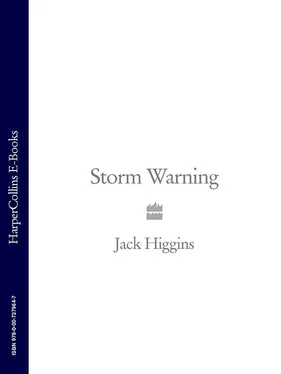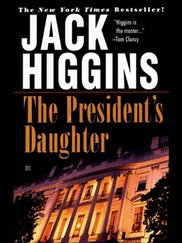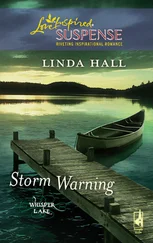‘What is it?’ Mendoza demanded mildly.
‘The Deutschland , Senhor Capitan,’ the watchman whispered. ‘She is gone.’
‘Indeed.’ Mendoza laid his cards face down on the table and stood up. ‘Watch her, José,’ he called to the barman. He picked up his cap and oilskin coat and went out.
When he reached the end of the fish pier, the rain was falling harder than ever in a dark impenetrable curtain. He lit a cigar in cupped hands and stared into the night.
‘Will you notify the authorities, senhor?’ the watchman enquired.
Mendoza shrugged. ‘What is there to notify? Undoubtedly Captain Berger wished an early start for the return trip to Rio, where he is due in eight days from now, although it would not be uncommon for him to be perhaps one week overdue, the weather at this time of the year being so unpredictable. Time enough for any official enquiry needed to be made then.’
The watchman glanced at him uncertainly, then bobbed his head. ‘As you say, Senhor Capitan.’
He moved away and Mendoza looked out over the river towards the mouth of the Amazon and the sea. How far to Germany? Nearly five thousand miles, across an ocean that was now hopelessly in the grip of the American and British navies. And in what? A three-masted barquentine long past her prime.
‘Fools,’ he said softly. ‘Poor, stupid, magnificent fools.’ And he turned and went back along the fish pier through the rain.
2
Barquentine Deutschland. 9 September 1944. Lat. 25°.01N., long. 30°.46W. Fourteen days out of Belém. Wind NW 6–8. Hove the log and found we were going twelve knots. In the past twenty-four hours we have run two hundred and twenty-eight miles. Frau Prager still confined to her bunk with the sea-sickness which has plagued her since leaving Belém. Her increasing weakness gives us all cause for concern. Heavy rain towards evening .
The morning weather forecast for sea area Hebrides had been far from promising: winds 5 to 6 with rain squalls. Off the north-west coast of Skye, things were about as dirty as they could be – heavy, dark clouds swollen with rain, merging with the horizon.
Except for the occasional seabird, the only living thing in that desolation was the motor gunboat making south-west for Barra, her Stars and Stripes ensign the one splash of colour in the grey morning.
Dawn was at six-fifteen, but at nine-thirty visibility was still bad enough to keep the RAF grounded. No one on board the gunboat could have been blamed for failing to spot the lone Junkers 88S coming in low off the sea astern. The first burst of cannon shell kicked fountains of water high into the air ten or fifteen yards to port. As the plane banked for a second run, the 13mm machine-gun firing from the rear of the cockpit canopy loosed off a long burst that ripped into the deck aft of the wheelhouse.
Harry Jago, in his bunk below trying to snatch an hour’s sleep, was awake in an instant, and making for the companionway. As he reached the deck, the gun crew were already running for the twin 20mm anti-aircraft cannon. Jago beat them into the bucket seat, hands clamping around the trigger handles.
Suddenly, as the Junkers came in off the water for the second time, heavy, black smoke swirled across the deck. Jago started to fire as its cannon punched holes in the deck beside him.
The Junkers was making its pass at close to four hundred miles an hour. He swung to follow it, aware of Jansen on the bridge above him working the Browning. But it was all to no purpose, and the Junkers curved away to port through puff-balls of black smoke and fled into the morning.
Jago stayed where he was for a moment, hands still gripping the handles. Then he got out of the seat and turned to Leading Seaman Harvey Gould, who was in charge of the antiaircraft cannon.
‘You were five seconds too late, you and your boys.’
The men of the gun crew shuffled uneasily. ‘It won’t happen again, Lieutenant,’ Gould said.
‘See that it doesn’t.’ Jago produced a crumpled pack of cigarettes from his shirt pocket and stuck one in his mouth. ‘Having survived the Solomons, D-Day and the worst those E-boat flotillas in the English Channel could offer, it would look kind of silly to die in the Hebrides.’
The pilot of the Junkers, Captain Horst Necker, logged his attack as having taken place at 09.35 hours precisely. A hit-and-run affair of no particular importance which had served to enliven an otherwise boring routine patrol, especially for a pilot who in the spring of that year, during the renewed night attacks on London, had been employed by the elite pathfinder Gruppe 1/KG 66 with the kind of success that had earned him the Knight’s Cross only two months previously.
It had been something of a come-down to be transferred to KG 40 based at Trondheim, a unit specializing in shipping and weather reconnaissance, although the JU 88S they had given him to fly was certainly a superb plane – an all-weather machine capable of a top speed of around four hundred miles per hour.
His mission that morning had one purpose. To look for signs of a convoy expected to leave Liverpool for Russia that week, although the exact day of departure was unknown. He had crossed Scotland at thirty thousand feet to spend a totally abortive couple of hours west of the Outer Hebrides.
The sighting of the gunboat had been purest chance, following an impulse to go down to see just how low the cloud base was. The target, once seen, was too tempting to pass up.
As he climbed steeply after the second attack, Rudi Hubner, the navigator, laughed excitedly. ‘I think we got her, Herr Hauptmann. Lots of smoke back there.’
‘What do you think, Kranz?’ Necker called to the rear gunner.
‘Looks like they made it themselves to me, Herr Hauptmann,’ Kranz replied. ‘Somebody down there knows his business and they weren’t Tommis either. I saw the Stars and Stripes as we crossed over the second time. Probably my brother Ernst,’ he added gloomily. ‘He’s in the American navy. Did I ever tell you that?’
Schmidt, the wireless operator, laughed. ‘The first time over London with the port engines on fire, and you’ve mentioned it on at least fifty-seven different occasions since. I suppose it shows that at least one person in your family has brains.’
Hubner ignored him. ‘A probable then, Herr Hauptmann?’ he suggested.
Necker was going to say no, then saw the hope in the boy’s eyes and changed his mind. ‘I don’t see why not. Now let’s get out of here.’
When Jago went up to the bridge there was no sign of Jansen. He leaned against the Browning and looked down. The smoke had almost cleared and Gould was kicking the burned-out flare under the rail into the sea. The deck was a mess by the port rail beside the anti-aircraft gun, but otherwise things didn’t look too bad.
Jansen came up the ladder behind him. He was a tall, heavily-built man and in spite of the tangled black beard, the knitted cap and faded reefer coat with no rank badges, was a chief petty officer. A lecturer in Moral Philosophy at Harvard before the war and a fanatical weekend yachtsman, he had resolutely defeated every attempt to elevate him to commissioned rank.
‘A lone wolf, Lieutenant.’
‘You can say that again,’ Jago told him. ‘A JU 88 in the Hebrides.’
‘And one of the Reichsmarschall’s later models, to judge by his turn of speed.’
‘But what in the hell was he doing here?’
‘I know, Lieutenant,’ Jansen said soothingly. ‘It’s getting so you can’t depend on anyone these days. I’ve already checked below, by the way. Superficial damage. No casualties.’
Читать дальше












